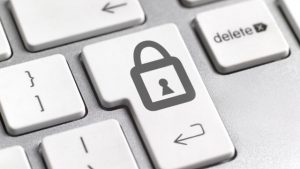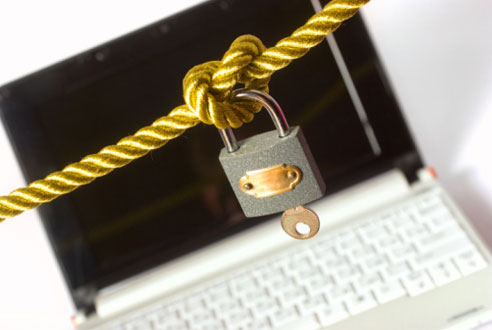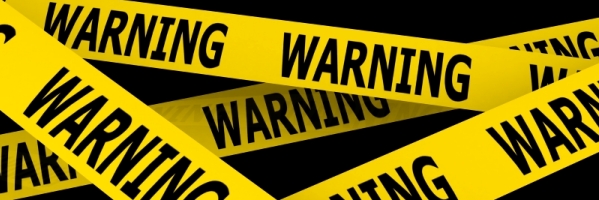Tips on how to protect yourself online (and keep your connected devices safe) while living in an Internet connected world.
 There are several ways to protect yourself online but unfortunately most are not very good options. One such terrible option is to start living under a rock, without a computer, or a smartphone, or an Apple Watch which to some, me included, would be impossible!
There are several ways to protect yourself online but unfortunately most are not very good options. One such terrible option is to start living under a rock, without a computer, or a smartphone, or an Apple Watch which to some, me included, would be impossible!
Below are some very practical and important steps that you must take to minimize your exposure to potential online hacks, identity theft and other things that can make that rock look rather appealing!
Mix up your passwords for your accounts.
Remember when we used one password for everything? Those days are gone. Don’t use the same password for your Facebook, Twitter, etc. that you use for your bank accounts online. The requirements to protect information like your passwords are stronger at financial institutions then on social networking sites. Mixing it up allows you to be safe if for example your LinkedIn account is hacked and then you do not have to worry about your checking account or your Amazon.com account.
Strong passwords are key.
While anything can get broken, having a password of 1234 or your birth date or dogs name is weak. Your birthday can pop up on Facebook as well as those cute pictures of you and your dog or cat Fluffy. Use a phrase with a number or a capital letter in an odd place (not at the beginning of the phrase). The more unique, the better and the longer the better, ten characters are better than eight, twelve is better than ten, and I recommend that you make it no shorter than twelve.
Set up two-factor authentication.
 Two-factor authentication or two-step verification is a smart way to protect things like your Google and Facebook (as well as other) accounts. There are many services that can provide two factor authentication for your hardware and log in’s to personal web sites. Basically it is an extra way to add a layer of security. Think of it like a second deadbolt on your front door. Open one lock, now you have to open another, much harder to break into.
Two-factor authentication or two-step verification is a smart way to protect things like your Google and Facebook (as well as other) accounts. There are many services that can provide two factor authentication for your hardware and log in’s to personal web sites. Basically it is an extra way to add a layer of security. Think of it like a second deadbolt on your front door. Open one lock, now you have to open another, much harder to break into.
Don’t reveal too much on social networks.
Secure your social networking world. You don’t need strangers knowing your life. Birthdates, when you go on vacation, your dog Fluffy, etc. It makes it to easy to the bad guys to figure out info on you. Leave it for your friends. You won’t give your drivers license to some stranger you walk by on the street. Don’t do similar stuff on your social network profiles.
Mac or PC – does not matter – Update your OS and Applications.
Make sure your computers operating system (OS) is up to date. This also includes applications you have on it. Be it Microsoft Word and especially the browsers you use. Applications are one of the main ways the bad guys get into your computer. They find a hole and move in. Updates will patch newly found or exploited holes and stop the ways the hackers get in.
Place a password on your wireless connection at home and at work.
Your wireless network should always be secured with a strong password. This stops strangers from jumping on it and using as well as encrypts the information you send and receive. Also, do not go to bank, stock, personal sites you have to sign into using passwords or private information on open or the free WiFi access you get at airports, hotels, coffee shops, etc. Information can be truly taken out of mid air…be smart on this.
Shop only at safe sites.
 When you find that great pair of shoes or a deal on that special George Forman Grill you wanted, etc., lookfor a little padlock icon next to the address as well as the URL website address shouldstart with a HTTPS address before your key in your in your credit card number. One more thing, always take a look at your credit card bills and banking accounts to see if anything looks funny. Most fraud comes from someone; someway getting your info…that way is usually from online internet transactions.
When you find that great pair of shoes or a deal on that special George Forman Grill you wanted, etc., lookfor a little padlock icon next to the address as well as the URL website address shouldstart with a HTTPS address before your key in your in your credit card number. One more thing, always take a look at your credit card bills and banking accounts to see if anything looks funny. Most fraud comes from someone; someway getting your info…that way is usually from online internet transactions.
Don’t just click any link.
We are so often just clicking away on links. But not all links are good links. They can look authentic or may come in an email from your bank or a store you shop and is personalized all the right graphics and information. If you are not sure (and even if you are) go to the web site directly and log in to your account. NEVER CLICK THE LINK.
Put a password on your phone and tablets.
That phone in your pocket or purse has just as much personal information on it as your computer. Sometimes even more. Use a password to protect it always. Make sure it auto locks after a few minutes of non-use or every time you use it. If you lose it or it is stolen, you have given more then a free phone to someone, you may have given them access to your money and personal information. Password protect them always.
Stay alert.
There is no way to really stop the growing ways that the bad guys are trying to get our information. But by doing some simple steps and making it harder to get inside your life is worth the time now and much more in worry later on if something happens.